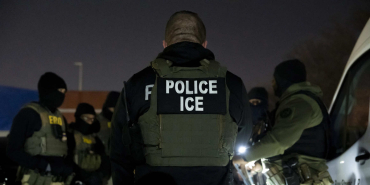Legal Experts Warn Green Card Holders of Heightened Risks When Traveling Outside the US

Amidst a backdrop of intensifying immigration enforcement, legal experts are advising US green card holders and visa applicants to carefully evaluate potential risks before travelling abroad.
This caution follows reports of heightened scrutiny at US borders, where even long-term residents are encountering unexpected challenges upon re-entry. The concerns stem from stricter interpretations of admissibility standards and increased discretionary enforcement at US ports of entry. Shannon Shepherd, Chair of the American Immigration Lawyers Association’s (AILA) media committee, notes a shift toward a more "negative application of discretion," resulting in denials or detentions for individuals who previously would have been allowed entry.
César Cuauhtémoc García Hernández, a law professor at Ohio State University, cautions that anyone who is not a US citizen should carefully consider their travel plans. Prior interactions with law enforcement or public statements critical of certain policies could affect a traveller's ability to return without incident. Legal experts emphasize the importance of carrying out all required documentation when exiting the United States. Green card holders must present a valid passport along with their permanent resident card.
If the green card is being renewed, travellers should carry an official receipt from US Citizenship and Immigration Services (USCIS) as proof of status.
Even with proper documentation, US Customs and Border Protection (CBP) officers reportedly have broader authority to deny entry based on prior criminal records or scrutiny of a traveller's social media activity. For foreign nationals seeking permanent residence through the Adjustment of Status (AoS) process, travel outside the country is generally prohibited without first securing Advance Parole authorization from USCIS.
However, some visa holders, including those on H-1B or L-1 visas, are permitted to travel while undergoing AoS without needing Advance Parole, as per CBP policy. Individuals on V and K-3/4 visas may also travel under similar conditions. As immigration policies evolve, attorneys advise non-citizens to stay informed about potential obstacles that could impact their ability to return to the United States. In this environment of heightened scrutiny, preparation and caution are essential when travelling internationally.














Add new comment